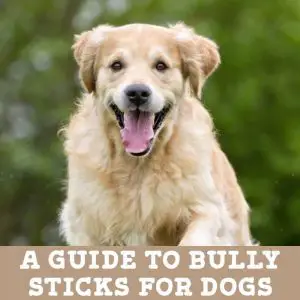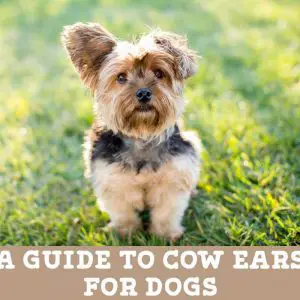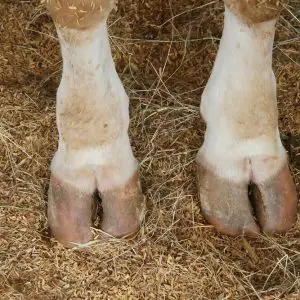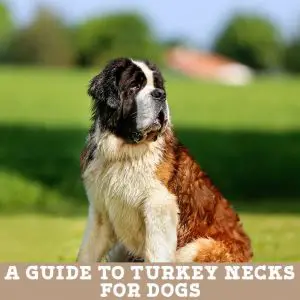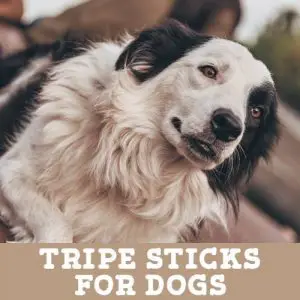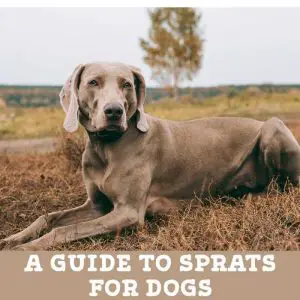Do you have a large dog and find that normal sized treats are not more than a mouthful for him? Or do you have a dog which has a big appetite? Are you looking for a natural treat which your dog is sure to love? Look no further — cow ears for dogs might be for you!
In this article we will look at where cow ears come from, how they’re made, what benefits they have and whether or not they’re safe for your dog.
Key facts
Cow ears are a great option for an occasional treat, which offers health benefits for the teeth and joints.
They provide a moderate amount of chewing time, and for most dogs, don’t pose any risk of ill-health.
However, cow ears can be sourced from a variety of places with varying degrees of animal welfare, as well as processed in very different ways, so it is important to investigate each individual product before buying.
What are Cows Ears?
Cow ears, as the name suggests, come from cows. They are a by-product of the beef industry, and processed after slaughter to create delicious chews for dogs. They are commonly chosen as larger alternatives for pig ears, as they are at least 50% bigger, and sometimes double the size! Don’t be fooled that a larger size means more chewing time though. On average it will take between 20 minutes and a couple of hours for a dog to finish a cow ear.
Naturally, cow ears are hairy, so they have to go through a process to get to the point at which they are edible. Firstly, the hair is removed, then they are disinfected. This is usually done with a mixture of sodium hypochlorite, but different companies will use different disinfectant solutions. Next they are dried. This can be through baking or dehydrating. Finally, some cow ears are also irradiated before they are packaged, which kills off bacteria such as Salmonella.
Due to the differences in the processing stage between companies, cow ears can look very different depending on where you buy them from. They could be dried relatively hard or slightly puffed up, and they can range in colour from white (most likely irradiated) to brown.
Benefits of Cow Ears for Dogs
Key benefits
Dental Benefits
Cow ears can also help your dog with improving his oral hygiene. Chewing on cow ears helps to remove plaque from the teeth, and reduce the chances of developing periodontal disease.
Nutritional Information for Cow’s Ears
Nutrition & Compounds
The nutritional make up varies between brands, but the numbers above are a reasonable rule of thumb.
Chondroitin
Since ears are mainly made up of cartilage, they are naturally full of chondroitin. This helps improve the health of joint cartilage, and specifically aids dogs with arthritis, or who are hard-wearing on their joints, such as active, working dogs.
Calories
Don’t Overdo It
As with all treats which are ingested, despite being low-fat, cow ears for dogs still contain calories, so it is important to make sure your dog doesn’t over-indulge.
Cow ears should be given as an occasional treat, as part of a balanced diet, no more than several times a week.
Downsides & Risks of Cow Ears for Dogs
Cow’s ears carry a small risk of choking, so always remove the last chunk. Overfeeding could cause an upset tummy. And obviously don’t feed if your dog has a beef allergy.
Small Choking Risk
Cow ears are generally considered safe for dogs as they are highly digestible. This means everything that reaches the stomach should be successfully digested. However, when they get small enough to swallow, you should remove the last bit to ensure your dog doesn’t swallow it whole and choke.
Diarrhoea
On very rare occasions, cow ears may trigger diarrhoea, however this is most common in dogs who have not had cow ears before, or eat too many too often. Most dogs tolerate them well.
Beef Allergy
You should consider avoiding cow ears if your dog has a beef allergy, as beef protein makes up a large percentage of cow ears. In addition to this, a whole cow ear is not a suitable size for a small dog, and therefore only a portion of it should be given as a treat.
Cow Ears for Puppies
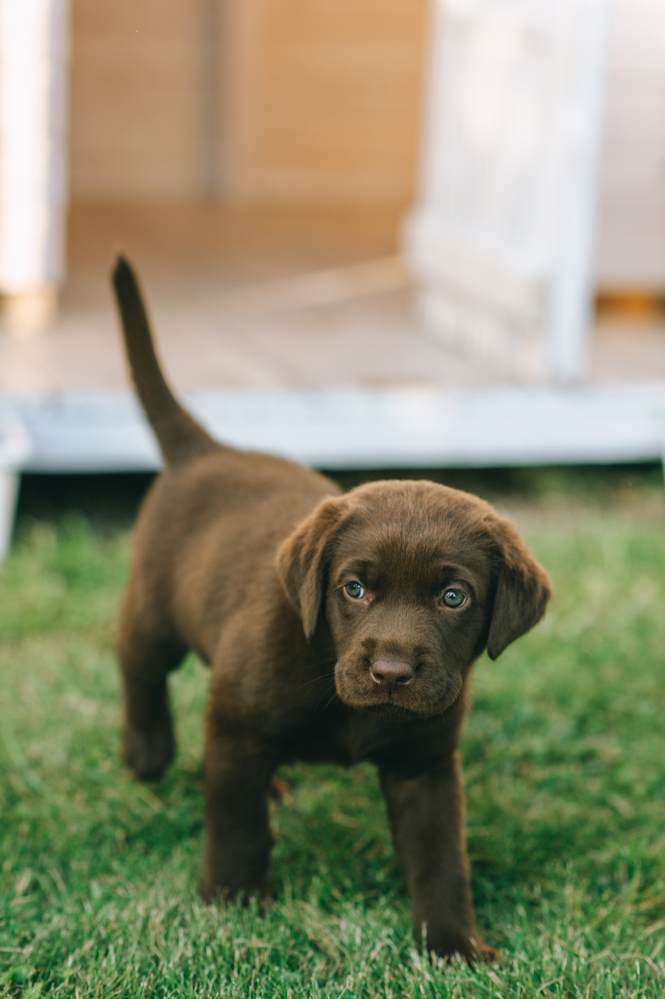
Puppies can be given cow ears from four months old to chew on to reduce teething discomfort, however a whole cow ear will be too big for a puppy. Therefore, you will need to cut it up or remove it from your puppy once he has eaten his allowed amount.
Alternatives to Cow Ears
Like the idea of cow ears but still not quite sold? Here are a few alternatives which you could consider giving your dog instead:
- Pig ears or Lamb Ears – If cow ears are too big for your dog, but you still want all the same benefits, try pig ears if you have a medium dog, or lamb ears if you have a small dog. However, pig ears in particular are more fatty than cow ears, which makes them very greasy.
- Antlers – If you’re looking for a low-fat chew which will improve your dog’s dental hygiene, antlers are a wonderful alternative. They’re much longer lasting, very effective at scraping off dental plaque and since they aren’t ingested, don’t contribute to your dog’s daily calories. The downside is that they are not meant to be swallowed, so if they are, they can cause problems.
- Chicken feet – If it’s the chondroitin content which attracts you to cow ears, chicken feet also contain high levels of cartilage and chondroitin, and therefore are great for dogs with joint issues.
- Ostrich tendons – If you want a great treat for your dog’s dental health which is longer lasting than cow ears, ostrich tendons are a good option. As these begin to soften, individual fibres appear, which acts similarly to a dental floss.
- Bully sticks – These are natural, dried chews which are made out of bull penis. They provide plenty of chewing time and are great for the teeth. However, unlike cow ears, they are high in calories and therefore are not suitable for dogs who are overweight.
FAQs
Cow’s ears are good for a dog’s dental health and also contain chondroitin, which is associated with healthy joints. Avoid giving too many cow ears, however, and always make sure to reduce feeding portions on days you do treat with a cow ear.
Cow ears are generally considered safe for dogs as they are highly digestible. This means everything that reaches the stomach should be successfully digested. However, when they get small enough to swallow, you should remove the last bit to ensure your dog doesn’t swallow it whole and choke.
One of the reason why cow ears appeal to consumers is because they are less greasy and less smelly than pig ears. In fact, they barely have a noticeable smell at all, unless you lift them close to your nose.
Also the lower fat content is what makes them less greasy, but they are not completely grease-free, so you should avoid letting your dog chew on them in carpeted areas.
Cow ears can occasionally cause diarrhoea, particularly when too many are fed, or if your dog has a sensitive stomach. This is usually because of the richness of the cow ear, however it can also happen if your dog has an allergy to beef protein, or if the cow ear is contaminated with bacteria. Most diarrhoea clears up within a day or two by feeding a bland diet, however if your dog does not improve or feels unwell, you should contact your veterinarian for advice.
Cow ears pose an extremely low risk of gastrointestinal blockages as they are highly digestible. Therefore, generally they are very safe. The exception to this is when the pieces become small enough to swallow whole, they can become lodged in the roof of the mouth, in the top of the throat or oesophagus, and potentially cause a choking hazard. Therefore they should be removed from your dog when they get to this point.
Cows ears are harvested as by-products from the meat industry to prevent usable parts of the carcass from going to waste. They can be harvested in many countries in the world; Australia, USA, Brazil, Argentina and China are the most common. Each country will vary with their standards of health and welfare, therefore it is best to search for grass-fed, organic cow ears to prevent buying from companies with poor welfare standards or where the cows have been fed unnecessary drugs or supplements.



